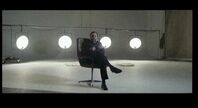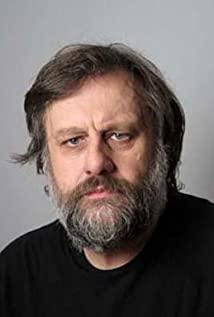Slavoj Zizek:
Joseph Stalin's favourite cinematic genre were musicals. Not only Hollywood musicals, but also Soviet musicals. There was a whole series of so-called kolkhoz musicals. Why? We should find this strange, Stalin who personifies communist austerity, terror and musicals. The answer again is the psychoanalytic notion of superego. Superego is not only excessive terror, unconditional injunction, demand of utter sacrifice, but at the same time, obscenity, laughter. And it is Sergei Eisenstein's genius to guess at this link. In his last film, which is a coded portrait of the Stalin era, Ivan the Terrible: Part 2, which because of all this was immediately prohibited. In the unique scene towards the end of the film, we see the Czar, Ivan, throwing a party, amusing himself, with his so-called Oprichniki, his private guards, who were used to torture and kill his enemies, his, if you want, KGB, secret police, are seen performing a musical. An obscene musical, which tells precisely the story about killing the rich boyars, Ivan's main enemies. So terror itself is staged as a musical. Now, what has all this to do with the reality of political terror? Isn't this just art, imagination? No. Not only were the political show trials in Moscow in the mid- and late-1930s theatrical performances, we should not forget this, they were well staged, rehearsed and so on. Even more, there is, horrible as it may sound, something comical about them. The horror was so ruthless that the victims, those who had to confess and demand death penalty for themselves and so on, were deprived of the minimum of their dignity, so that they behaved as puppets, they engaged in dialogues which really sound like out of Alice in Wonderland. They behaved as persons from a cartoon.







